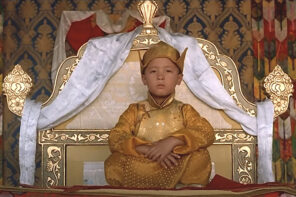A jury in Salt Lake City has found Brian David Mitchell guilty, on counts of kidnapping and transporting a minor across state lines for the purposes of having sex, in the 2002 kidnapping of then 14-year-old Elizabeth Smart.
Mitchell, who has entered the courtroom each day (including today) singing hymns from the LDS hymnal, was portrayed by the defense as an anti-social narcissist led by delusional thinking to believe that he was directed by God to take Smart as a polygamous wife.
Prosecutors, meanwhile, urged jurors not to view Mitchell as insane. His “delusional” worldview, they noted, did not come out of thin air, but from his own opportunistic amalgamation of elements of Mormon belief and culture. And he did not suffer some dramatic break with reality typically associated with delusional thinking.
Smart, who returned from LDS missionary service in Paris for the trial, provided extensive, detailed testimony of her harrowing nine-month, multi-state captivity, proving her own resilience and helping by her example to terminate a view once held in conservative quarters of Mormondom that death was preferable to loss of one’s virginity.
What is striking for me is the line drawn by prosecutors between delusional and non-delusional states. Mitchell should be found not insane, they argued, because his beliefs did make some kind of sense within the longer history of Mormon culture, even if he manipulated our culture to harm others.
Every religious community has extremists who use the pretext of belief to do harm, even criminal harm. And not all of those who use belief to cause harm look like the gaunt, homeless self-proclaimed prophet Mitchell, who left the courtroom in handcuffs, does. This week, a friend wrote to relay the heartbreaking discovery of incest and sexual abuse in her immediate family.
“How far back does this go in my Mormon family history?” she asked. Church leaders have been unequivocal in their denunciation of abuse. However, as Mormon feminists also point out, elements of traditional Mormon culture and belief—including polygamy and explicit patriarchy—can create conditions of power disequilibrium and vulnerability that contribute to abuse. It’s a sobering topic for reflection on the day that Brian David Mitchell was found guilty but not insane in the context of Mormon culture.




